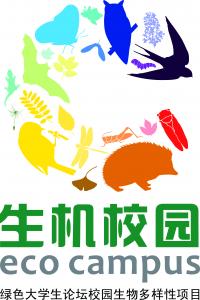Gen Fellowship

Grant winners will work continuously over 7 months with Future Generations staff and experts to:
- Polish their proposals
- Sharpen strategies
- Prepare a detailed project budget
- Develop a management plan
- Map a project timeline
- Implement and manage the project
- Collect and process data
- Report and showcase their work to a nationwide audience both through news media and the Gen Expo in Beijing

Nature and I, the environmental education exchange project between China and the US
The project director: Tan Lulu
The project abstract:
Nature and I, the environmental education exchange project, aims to bring the environmental education ideas and methods which have developed in the US for years into the schools in the protection zone through establishing partner primary and middle schools for environmental protection in China and the US. In this way, the project will improve the environmental education capacity of the teachers in the protection zone, inspire the students’ interest to participate in the environmental education, cultivate the students’ environmental education accomplishments and promote the development of the primary and middle school environmental education in the protection zone of China. The project is expected to make use of the environmental education in the protection zone schools, improve the students’ sense of pride as well as their awareness of the significance and function of local ecological system and thus enhance the local environmental protection activities. The project is also expected to go deep into the communities and local families through the students and influence the parents through the students. The project wants to improve the environmental awareness and protection actions in the whole community.
The first stage is planned to take place in Lingjintan Town Middle School in Taoyuan County besides Ruanshui National Wetland Garden and Wanquan Primary School in Hupingshan Town of Hupingshan National Natural Protection Zone. The American counterparts are Oslow county schools located in the North Carolina with long history of environmental education. The first stage of the project is going to take one year and its main objectives include: 1. establish communication and exchange channels. 2. design and implement the environmental education courses in the protection zone. 3. evaluate and revise the environmental education. 4. initially establish the China-Us primary and middle school environmental education model project for further propagation.
The second stage of the project aims to optimize the environmental education teaching and teachers training in order to bring the environmental education into the communities through the students and strengthen the China-US school communications, such as students and teachers exchange visits. The third stage of the program plans to spread the communication model into ten protection zones.
The project is supported in technique by Project Learning Tree (PLT) and Project Wet (PW), two most prestigious and oldest environment education institutions as well as Cornell University Civil Ecology Lab and North Carolina University International Collaboration Centre. The environmental education teachers training station in Hunan is sponsored by International Foundation for China’s Environment and Future Generation China and helped by the Nature and I environment education studio.

Eco Campus
The executing agency: Green Undergraduates Forum
Project Abstract:
A large number of universities and colleges converge in Beijing. They usually enjoy great ecological surroundings and provide habitats for the wildlife. For example, the green land in the west mountain-Yiheyuan Garden-Yuanmingyuan Garden-PKU-THU-BJFU-BLCU aggregate and provide a ecological passage for migration of species in Beijing. The biodiversity in the colleges is not only a great landscape, but also an integral part of the ecological safety of the city.
However, with the development of the city, the expanding enrollment of the colleges and frequent campus reorganization and expanding, many well-kept biodiversity zones are replaced by buildings or one-species grassland. Therefore, the Eco Campus project starts. After all the efforts we have made in 2011, we have organized volunteers in five universities and colleges to finish the survey about campus biodiversity and plan to report the survey result to the campus construction department and evoke their awareness of campus ecological protection.
However, we are fully aware that the key of the campus ecological protection is the undergraduate students. Only when their awareness of protection improves can they question the unreasonable construction and help the campus plan. As a result, we plan to make use of the result and carry out a variety of biodiversity activities closely associated with their lives and thus improve their knowledge and awareness. We will begin in the following aspects:
- Biodiversity knowledge popularization lectures and campus natural experience
- Guide tours at fixed time and location on campus
- The records of the living conditions of the most beautiful, precious and important species
- Eco Campus e-magazine.
After careful consideration, the four activities will connect the campus ecology with the undergraduates’ lives through different methods.
The distinctiveness of the project lies in that as the urbanization develops rapidly, the project is based on the city and starts from the campus biodiversity protection. It starts from leading the mass focus on and understand the issue, reflects the reality and problems and finally stimulates the mass to propose their own appeals. This kind of work is very effective. In 2006, Wang Fang, a doctor from PKU together with his colleagues, made proposals for campus planning through their survey. The department concerned paid attention and started to consider the campus ecological protection. This project continues and expands from his action. At the same time, we hope we can spread the activities into the ecological protection of the city and help the communities to make a reasonable plan in the construction and make its environment better.
